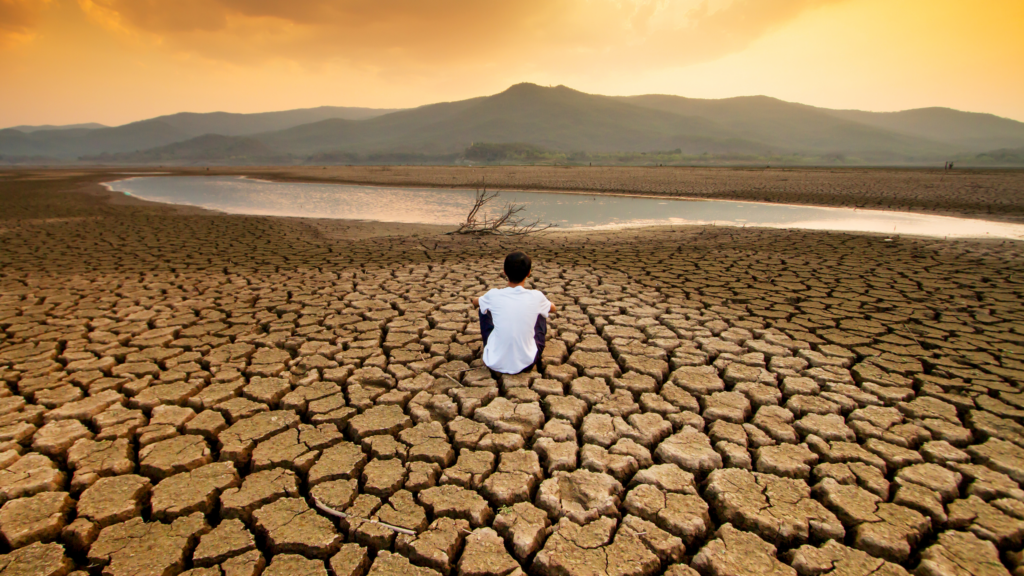WWF Report: Water crisis threatens US$58 trillion in economic value, food security and sustainability

|
Listen to this story:
|
- First ever annual estimate of economic value of water and freshwater ecosystems is US$58 trillion – equivalent to 60% of global GDP
- Degradation of rivers, lakes, wetlands and aquifers threatens their economic value and their irreplaceable role in sustaining human and planetary health
Water, the world’s most precious yet undervalued resource, lies at the heart of a mounting global crisis that threatens both human and planetary health, warns a new report, published today by WWF.
Released on World Food Day, The High Cost of Cheap Water uncovers a stark reality: the annual economic value of water and freshwater ecosystems is estimated to be US$58 trillion – equivalent to 60% of global Gross Domestic Product (GDP)*. But the world’s freshwater ecosystems are in a downward spiral, posing an ever growing risk to these values.
Since 1970, the world has lost one-third of its remaining wetlands, while freshwater wildlife populations have, on average, dropped by 83%. This disastrous trend has contributed to growing numbers of people facing water shortages and food insecurity, as rivers and lakes have dried up, pollution has increased and food sources, such as freshwater fisheries, have dwindled. It is also exacerbating economic pressures and undermining global efforts to reverse nature loss and adapt to the worsening impacts of climate change, from devastating droughts and extreme floods to sea level rise.
“Water is one of the cornerstones upon which our shared future stands,” saidDr Kirsten Schuijt, WWF International’s Director-General. “WWF’s report reveals the staggering underlying value of water and freshwater ecosystems to our global economy and environment. Healthy rivers, lakes and wetlands are essential for water and food security, adapting to climate change and sustaining biodiversity, but they also provide priceless cultural and spiritual values that are vital to people’s wellbeing worldwide.”
“It is time for governments, businesses, and financial institutions to invest in protecting and restoring our freshwater ecosystems to ensure we build a future where water flows in abundance for all,” added Schuijt.
The report finds that direct economic benefits, such as water consumption for households, irrigated agriculture and industries, amount to a minimum of US$7.5 trillion annually. It also estimates that the unseen benefits – which include purifying water, enhancing soil health, storing carbon, and protecting communities from extreme floods and droughts – are seven times higher at around US$50 trillion annually.
Related Article: New Research from Tide and WWF Helps Unlock the Secrets to Sustainable Behavior Change
However, the degradation of rivers, lakes, wetlands, and groundwater aquifers is threatening these values as well as undermining action on climate and nature and progress towards the UN Sustainable Development Goals. Extracting unsustainable amounts of water, harmful subsidies, alterations to river flows, pollution, and climate change-related impacts are endangering freshwater ecosystems. Shockingly, two-thirds of the world’s largest rivers are no longer free-flowing, while wetlands are continuing to be lost three times as fast as forests.
Combined with poor water management, the destruction of freshwater ecosystems has left billions of people worldwide lacking access to clean water and sanitation, while water risks to businesses and economies are growing. By 2050, around 46% of global GDP could come from areas facing high-water risk – up from 10% today.
To address the global water crisis, WWF calls for governments, businesses and financial institutions to urgently increase investment in sustainable water infrastructure. However, it cautions that outdated thinking, which focuses solely on more built infrastructure and ignores the source of the problem: degraded rivers, lakes, wetlands, and aquifers, will not solve the water crisis, especially in the era of climate disruption.
The key lies in reversing the ongoing loss of freshwater ecosystems. Governments, for example, should join the Freshwater Challenge, a country-led initiative that aims to restore 300,000km of degraded rivers and 350 million hectares of degraded wetlands globally by 2030 and protect intact freshwater ecosystems. Meanwhile businesses must transform their approach to water and scale up collective action to build more resilient river basins.
“Water and freshwater ecosystems are not only fundamental to our economies, they are also the lifeblood of our planet and our future,” said Stuart Orr, WWF Global Freshwater Lead. “We need to remember that water doesn’t come from a tap – it comes from nature. Water for all depends on healthy freshwater ecosystems, which are also the foundation of food security, biodiversity hotspots and the best buffer and insurance against intensifying climate impacts. Reversing the loss of freshwater ecosystems will pave the way to a more resilient, nature-positive and sustainable future for all.”










